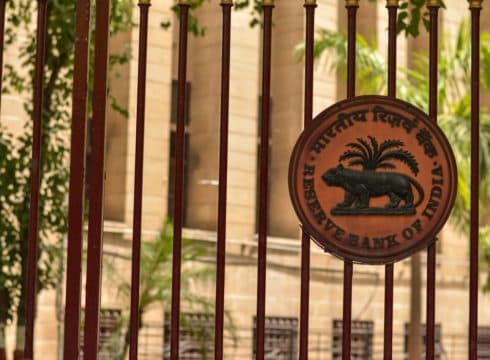Fintech companies partner with banks and NBFCs to access credit bureau data on consumers
This data is reportedly accessed by the startups without the consent of consumers
Digital lending startups have raised $1.94 Bn in funding between 2015 and Q1 2019
Inc42 Daily Brief
Stay Ahead With Daily News & Analysis on India’s Tech & Startup Economy
The Reserve Bank Of India has reportedly asked banks and NBFCs (non-banking financial companies) to stop sharing consumer credit history with non-regulated entities, according to a media report.
The regulatory body reportedly said that such sharing of credit information is against the country’s Credit Information Companies (Regulation) Act, 2005 and may result in penalties in case of further violation.
The banking bodies have been given 15 days by the RBI to report back on the measures taken to stop this data sharing practice.
RBI’s order will impact digital lending startups that depend on their bank and NBFC partners to access consumer data through credit bureaus. Many such companies have based their business models on this practice, solely innovating on the technology end to ease the lending process for customers.
As per DataLabs by Inc42, the credit demand in India is projected to be worth $1.41 Tn by 2022. The estimated growth rate in credit demand is 3.73% between FY17 and FY22.
This $1.41 Tn opportunity has led to the growth of multiple lending startups in the country including LendingKart, PerkFinance, Aye Finance, ETMONEY, LazyPay, and Shubh Loans, among others.
In addition to this, other tech companies have expressed interest in entering the lending space. In July, Digital payments unicorn Paytm partnered with NBFC Clix Finance to enable digital loans for both its customers and merchants. On the other hand, ride hailing major Ola and ecommerce platform Flipkart were reported to be co-launching credit cards, in partnership with major Indian banks.
Between 2015 and Q1 2019, the total investment in Indian fintech startups was $7.62 Bn with a total deal count of 478. Out of the total funding, 50.13% or $3.82 Bn was in payments tech startups, followed by 25.49% ($1.94 Bn) in lending tech startups, according to Datalabs by Inc42.
The prevalence of digital lending startups in India has opened new opportunities for synergies between fintech startups and established financial institutions and banks. Also, traditional financial institutions have been forthcoming in partnering with fintech startups to leverage their technology platforms and expand their customer base by tapping users of fintech products.
Startups have also registered themselves as NBFCs to bypass the middle layer. In July, Gurugram-based online used car marketplace Cars24 procured an NBFC license from the RBI to consumer lending business. Last year, Nasper’s PayU too have received approval from the RBI to operate its NBFC. PayU owns a lending company under the brand name LazyPay.
{{#name}}{{name}}{{/name}}{{^name}}-{{/name}}
{{#description}}{{description}}...{{/description}}{{^description}}-{{/description}}
Note: We at Inc42 take our ethics very seriously. More information about it can be found here.


